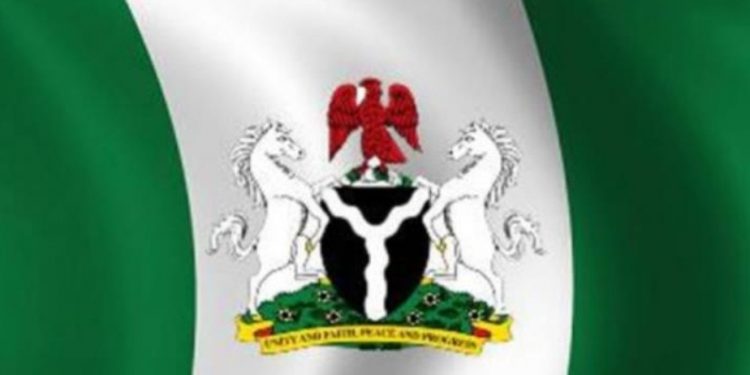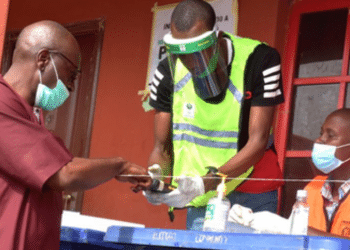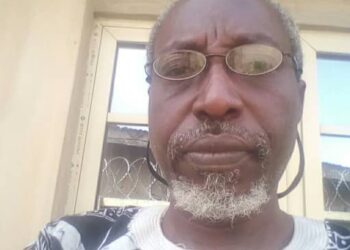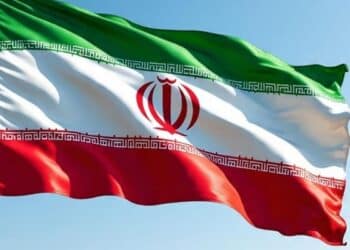‘A body of men holding themselves accountable to nobody ought not to be trusted by anybody.’ ~ Thomas Paine.
In 2011, an international donor named Global Funds petitioned the ICPC over the discovery of heinous frauds in the course of auditing 15 grants awarded to 7 NGOs amounting to $474,519,260 (four hundred and seventy-four million, five hundred and nineteen thousand, two hundred and sixty dollars), which was disbursed between 2003 and 2009 earmarked to fight Aids, tuberculosis and malaria in Nigeria. In June 2022, the High Court of Borno State sentenced Ms Aisha Wakil, the Chief Executive Officer of Complete Care and Aid Foundation, to five years’ imprisonment for fraud. In 2019, Officials of the EFCC intercepted cash to the tune of N54,000,000 at Maiduguri International Airport, which was being laundered by two NGOS and their cohorts. Are Nongovernmental Organisations and Civil Society Organisations in Nigeria serving as the third sector of society, or are they merely opportunists with self-centred intentions using the platform as a money-making enterprise?
In March 2021, the European Union Agents for Citizen-Driven Transformation (EU-ACT) surveyed to assess the current levels of compliance with legal frameworks among the supported CSOS/Networks/CBOS in Abuja, Lagos, and eight other states. The results of the survey indicated that out of 119 sampled, a third of them were compliant with the CAMA law, less than 10% of the CSOS were fully tax-compliant, and 14% of the CSOS were SCUML-compliant. The NGOs/CSOs attribute noncompliance with existing regulations to a lack of requisite knowledge and information about the laws, with ignorance being a convenient alibi for a group of people who are conversant with Nigerian, AU, EU, and UN laws but are mischievously unaware of laws regulating them.
Since Nigeria’s return to Democracy in 1999, there have been proliferation of Non Profit Organizations (NPOs) under the dual aegis of Non-Governmental Organizations (NGO) and Civil Society Organizations (CSO) who have consistently interrogated Nigeria’s Government policies and demand accountability and transparency, ironically the NPOs themselves are deficit of financial transparency nor accountable. Civil Society Organizations operate under the perception of being the voice and defender of the people. Still, the Civil Society Organisations in Nigeria operate as a fraternity that utilises the needs of the people as a means to gain access to international organisations’ grants and the government’s MDAS, while evading transparency, claiming ‘silencing and shrinking of civic voices’ whenever they are requested to open their accounts. A random check on the websites of active CSOs in Nigeria shows that less than 20% of them publish their financial statements, which furthers suspicion about their activities. According to World Association of Non-Governmental Organization (WANGO) ‘NGOs should have proper financial and legal procedures and safeguards in place, not only to stay within the law, but also as a measure of the organization’s health and to assure donors, members, and the general public that investments in the organization are safe and being correctly used. NGOs should employ sound internal financial procedures, maintain financial records carefully, and make financial statements available to the public.
They should also have their financial records periodically reviewed by a qualified examiner who can certify that the organisation is operating legally and in accordance with generally accepted accounting practices. NGOs must be diligent that they are complying with applicable federal, state and local laws.’
Most Nigerian Non-Profit Organisations have a Chief Operating Officer who is permanently at the helm of affairs, much like monarchs, contrary to the dictates of the World Association of Non-Governmental Organisations (WANGO), which stipulates that there should be a tenure and a time limit for the leadership of an NPO. Some organisations in Nigeria have been personalised, with the CEOS and their spouses serving as signatories to the organisation’s accounts. NPOS in Nigeria operate loosely without a supervisory agency.
NPOs in Nigeria live an affluent life, they spend the larger chunk of donated funds on their lavish lifestyle instead of spending for the targeted beneficiaries. They operate from 5-star Hotels, with some having Offices in highbrow areas, while driving luxurious cars within a project’s budget. Their luxurious lifestyles, combined with a lack of transparency, raise questions about their credibility, as they rely solely on international grants for their income. Most of the NGOs/CSOs have on their website’s ‘Annual Report’ which is a summation of activities they have done for the year not financial reports, a random analysis of the financials of some selected NGOs in Nigeria vis-a-vis what is on their website and what is on the donor’s website has the following: –
Civil Society Advocacy Centre (CISLAC)
In 2006, the Civil Society Advocacy Centre (CISLAC) incorporated. They have a link to their financial report on their website. However, the said financial report link is a dummy. When clicked, it displays Cislac’s antifraud policy.
Cislac is an advocate and partner of the Open Governance Partnership, but has failed to make its financials public. Over the years, Cislac have been a recipient of foreign grants, some of which are shown in the pictures below:
Policy and Advocacy Centre (PLAC)/ SITUATION ROOM
PLAC was founded in 2009. PLAC is an independent, non-partisan, non-profit capacity-building organisation that works to strengthen democratic governance and citizens’ participation in Nigeria. The PLAC website (www.placng.org) contains all infographics of NASS bills and pictures of its activities; however, there is no section on the Site where its financials are published. Below is a fraction of the unpublished grants that PLAC have received: –
Connected Development (CODE)
The initiative was launched in 2012 to improve public governance in Nigeria by empowering marginalised communities to demand high levels of accountability and transparency from the government.
Connected Development deserves recognition for publishing its 2021 financial report on its website. Using CODE’s doctrine of ‘follow the Money’ there are discrepancies between what the donors published to have awarded and what is on CODE’s financial report. In its report, CODE claims to have received N23,900,000 from MacArthur in 2020; however, according to the MacArthur Foundation’s website, it published that it granted CODE $450,000 in 2020. According to the report, between 2020 and 2021, CODE spent over N53,000.00 on communication.
NGOs in Nigeria have been recipient of Funds from the National Endowment for Democracy (NED) which is a cover for CIA operations, Strengthening Private Sector Participation and Capacity to Support Post-COVID Economic Recovery Effectively got $1,035,191; EIE received $145,000, SERAP got $200,000, BugtIT $102,000, and Premium Times $50,500 from NED published on NED’s website ‘who comes to into equity must come with clean hands’…. Civil Society Organisations and Non-Governmental Organisations in Nigeria cannot demand Accountability and Transparency from the government while they remain unaccountable.










